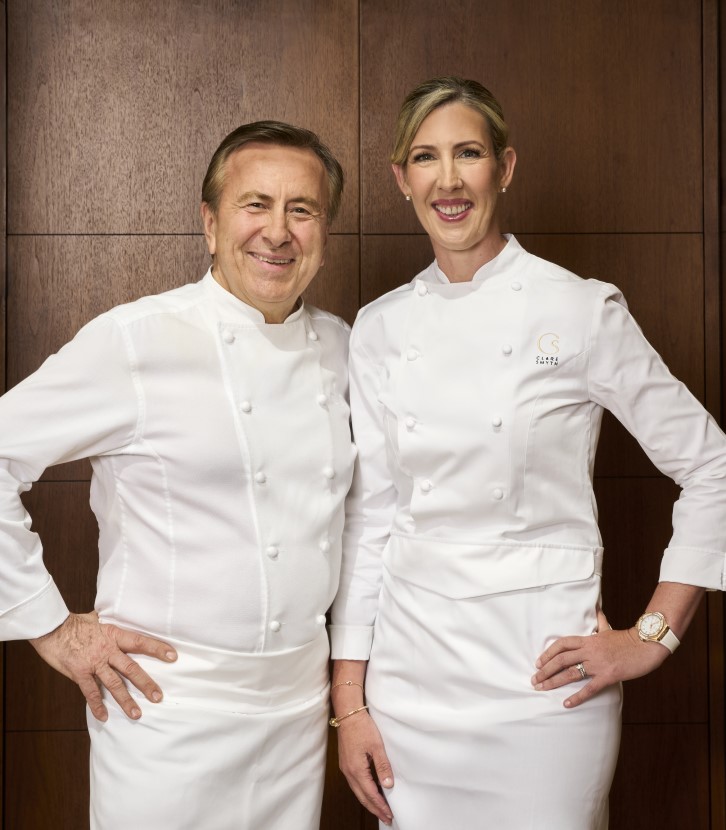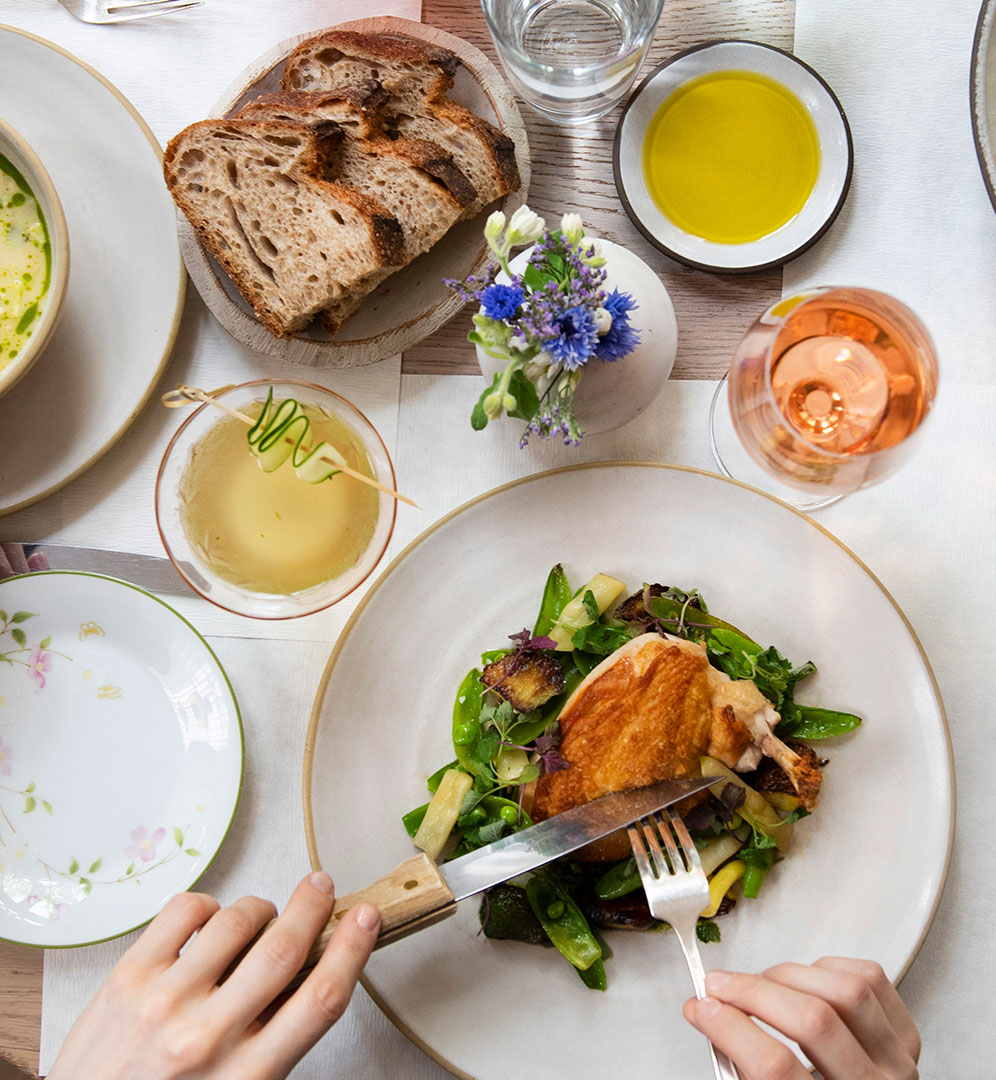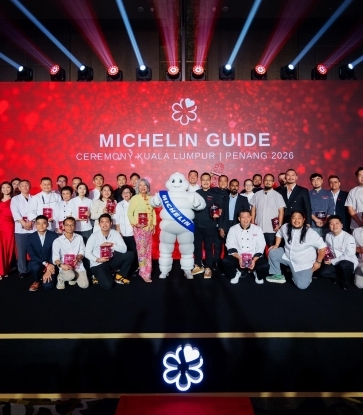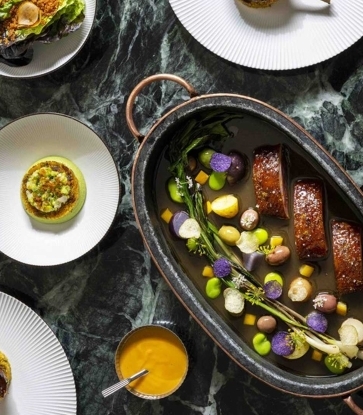One such restaurant is Halia at Singapore Botanic Gardens. Snuggled comfortably amidst the lush greenery, the restaurant was officially Halal-certified by Majlis Ugama Islam Singapura (MUIS) in May this year. "We have always received great interest from the Muslim community in Singapore and abroad regarding dining and events, due to our unique ambience, especially now that the Gardens has been inscribed as a UNESCO World Heritage Site," shares Esther Wee, managing director at Halia.
Over at Santaro by Gion in Amara Hotel, the Japanese restaurant became the first Halal-certified eatery to offer premium Japanese cuisine when it received its certificate last year.

On The Menu
Step into Halia now and you'll find the menu features new dishes such as lightly-smoked kingfish, done beautifully with all the right elements — fresh slices of chilled cucumber, almonds for some crunch, and chilli and ginger for a lingering heat.
"A misconception of halal food is that the ingredients could taste different from non-Halal ingredients. As halal ingredients are governed by strict criteria, this ensures that the meat prepared for consumption not only does not contain pork or alcohol, but also meets really high hygiene standards," says Wee. "Neither does it mean the meats will differ in taste; that is up to the marinades and cooking processes employed by chefs. If anything, it's a win for diners."

"There is growing interest in halal-friendly Japanese food now, and we wanted to show that fast-food like ramen doesn't mean we use cheap ingredients," says McCully.
SEE ALSO: Our Take On Jimoto Ya's Ebi Ramen Here

To be sure, the decision to be a halal-certified restaurant comes with its own set of challenges. Besides having to use specific suppliers and being careful not to use pork or lard while cooking, there's also the matter of alcohol. Says Wee: "Western cuisine often recommends the pairing of certain food with wine. However, being a Halal restaurant, Halia cannot offer alcohol." To make up for this, the restaurant has come up with drinks that use interesting herbs and spices to add flavour.
Over at Santaro by Gion, the challenge is in the sauces the restaurant uses. "Many Japanese sauces use mirin (alcohol-based) and animal-based gelatine traditionally, as it adds a sweetness to the sauce," shares a representative from the restaurant. Since the restaurant could no longer use commercial seasonings, the team set about coming up with their own sauces.
"After years of trial and error, our Master Chef Matsuno has created a special Halal yakiniku sauce. The sauce is made from fresh ingredients such as spring onions, combined in strict proportions and cooked to exact standards to match that natural sweetness we are looking for," says the representative.





















